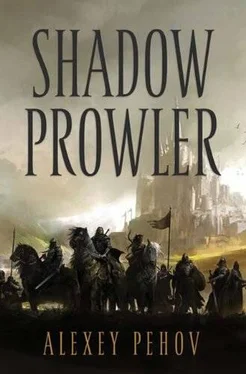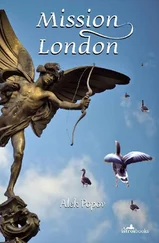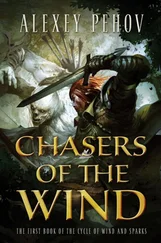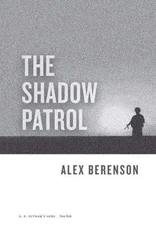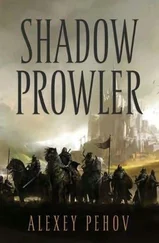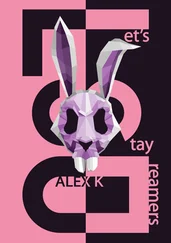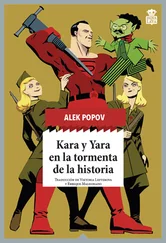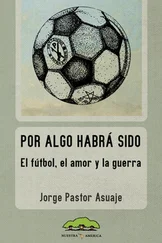“I’ll draw you a dozen as good as that one!” one of the pikemen standing behind us shouted.
No one was in any hurry to come out to us.
“Then take a look at this!” Uncle barked. “Or do you want me to ride closer?”
Despite his chain mail, the platoon leader had managed to bare his arm up to the elbow. The tattoo on it was clearly visible.
“Or will any of you white-and-crimson lads dare to say that the Wild Hearts don’t serve the Stalkons?”
No one said so. How could they? If the Wild Hearts were traitors, then who could you trust? Nobody even doubted that the tattoo was genuine. As I said earlier, impostors usually had their tattoos removed together with their arm. Or even with their head.
The bows and pikes were lowered, no longer threatening us. But the chasseurs were in no hurry to put their weapons away. They kept hold of them, just in case they might come in handy.
A soldier with a corporal’s badge on his sleeve came out to us.
“You’re a long way from the Lonely Giant,” he said. “Who are you and what are you doing here?”
Like the rest of them, the corporal had his face hidden behind a bandage.
“Is there plague in the village?” Miralissa asked unhurriedly.
“Yes.”
How could some ordinary piece of rag save you when not even the much-vaunted magic of the Order was any help? There was only one thing that anyone who caught the copper plague could do-try to dig his own grave in the time he had left. In ancient times entire cities had died of this terrible illness. Not just cities-entire countries! It’s enough to recall one of the most terrible epidemics, when the still unified Empire was hit by the plague. Nine out of ten people died. And then half of the survivors died. And the next year half of those who were left followed them.
Nothing had been heard of this curse for a very long time. No one had thought about the plague for more than a hundred and fifty years. And now the old disease had reappeared all of a sudden, out of the blue, in the very heart of Valiostr? There was something fishy going on here.
The plague usually appears on the borders of the kingdom, brought in by refugees from another state, and then spreads like wildfire into the central areas of the country. But on the other hand, it has to appear somewhere first. For instance, if some clever dick digs up the old burial sites…
“Everything is written here,” said Miralissa, holding up the royal charter.
The corporal didn’t even reach out to take the document.
“There is pestilence in the village, milady. We have been forbidden to touch other people’s things in order not to spread the infection through the district. We have also been forbidden to allow anyone either in or out, no matter who they might be. Anyone who disobeys will be executed immediately as a traitor to the king and a propagator of pestilence. I ask you once again: Who are you and what are you doing here?”
“None of your business, you damn chasseur,” Hallas muttered to himself, but fortunately the corporal didn’t hear him.
“We are on a mission for the king,” said Miralissa, with a hint of anger in her voice. “We are on our way to Ranneng. That is all you need to know, corporal. And any hindrance caused to us is regarded as a crime against the crown.”
“There is nothing I can do,” the corporal muttered, caught on the horns of a dilemma.
The problem was clear enough: on one side an order not to allow anyone through and on the other the royal seal. So try to figure out what to do: Let them through and you’ll lose your head; don’t let them through, and you’re in for big trouble anyway.
“I have my commander’s orders,” said the corporal, clutching at his last straw.
“What can supersede a command from the king?” Miralissa insisted, sensing that her opponent’s defenses were cracking.
“A threat to the life and prosperity of the kingdom,” said a voice behind the barrier.
The ranks of soldiers parted and two figures came out to join the corporal. Their faces were concealed by bandages, but they were still easily recognizable as members of the Order. A magician and an enchantress.
“The plague sets all of us on the same level. If the disease escapes from this localized pocket, the country will face catastrophe, Tresh Miralissa.”
“I don’t believe I have had the pleasure,” the elfess said coldly.
“Magicians of the Order of Valiostr, Balshin and Klena,” said the man. “Of course, you did not recognize me in this protective mask, but we have met, Tresh Miralissa, at one of the receptions in his majesty’s palace.”
“Anything is possible,” Miralissa said with an indifferent nod. “What has happened here? Can you tell me, magicians?”
“Do you mind if I take a look?” the enchantress asked, holding out her hand.
As Miralissa coolly handed the document to the woman, I saw her nostrils flaring in fury. The elfin princess was not accustomed to having obstacles put in her way.
“You are free to go, corporal,” Balshin said in a low voice. The chasseur gave a sigh of relief and withdrew to join his men, leaving the magicians of the Order to deal with us.
“Genuine,” said the woman, after making a few passes over the paper.
For a split second the royal document flared up with a pink glow.
“That ought to eliminate any possible infection,” said the enchantress, handing the paper back to Miralissa.
“What is going on here is as follows,” said the magician, not disconcerted in the least by having to throw his head back to look up at the riders on their horses. “Enchantress Klena and I were riding past the village when the first case of infection appeared. That was three days ago-”
“How did the illness come to be here?” Ell interrupted.
Ah, so I wasn’t the only one who was confused about the strange way the pestilence had appeared so dangerously close to Ranneng. Just a few days’ journey from the second-largest city in Valiostr.
“We do not know. That still has to be investigated,” said Klena. “But the symptoms are authentic. We were able to summon a regiment of Heartless Chasseurs quartered in the city. They closed off all the roads and paths to make sure that not a single inhabitant was able to leave the center of infection and spread the plague across the country.”
“And have there been any attempts?” Arnkh boomed from under his helmet.
“There have,” the magician said with a perfunctory nod.
A very perfunctory nod. Nobody asked any more questions, although it was clear to all of us what must have happened to the desperate people who found themselves caught in the trap with the victims of the infection. They had been shot with arrows from a distance, that was what. And it made no damn difference who was trying to break through the chasseurs’ blockade-healthy peasants with pitchforks or women with children. No one blamed the Heartless Chasseurs, though-it was a matter of kill a few dozen now or expose thousands more to danger.
“And what of the chasseurs themselves?” Miralissa asked.
“Securely protected by magic.”
“And since when has magic protected against the Copper Killer?”
“Magic is constantly developing,” Klena declared pompously. “The Order has learned how to prevent the illness from infecting people, but there is no way to help those who have been infected before we can protect them.”
The longer this conversation went on, the less I liked it. There were just too many things in the story the magicians had told us that didn’t fit. And apart from that, they weren’t even telling us half the story. If that kind of protective magic did exist, it was clear enough why the chasseurs were still here, and not running as hard as they could away from the plague spot. But then why had the magicians used their wizardry to protect an entire regiment of soldiers, but not done the same for the villagers at the very start of the epidemic when, according to the magicians, only one person was infected?
Читать дальше
